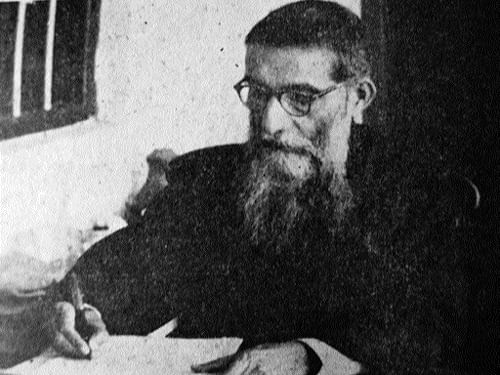
Karnataka counts Konkani as one of its own tongues. Konkani literature, written in Kannada script, has developed in leaps and bounds, and the language is officially recognised in the 8th Schedule of India. Celebrating this language is the Mangalore-based Konkani weekly Raknno (meaning guardian), which has just completed 75 glorious years. Raknno may be cited as a key milestone in the growth of Konkani.
Raknno was founded by Rev. Sylvester Menezes in 1938 under the direction of then Bishop of Mangalore Rt. Rev. Victor Fernandes. The first issue came out on December 16, 1938, termed as ‘Pre-Issue. Eucharistic Congress Special’, with the lead story Raknno Ulaitha (Raknno speaks). And since then, this weekly has evolved and grown to become the mouthpiece of the Canara Konkani Christians. Rev. Francis Rodrigues is the current and eighth editor since 2006.
Before the advent of newspapers and other forms of media, Raknno was the only local Konkani news medium to cover historic events. It has reported on the world war, Indian Independence, and is used for reference even today. The Kodialbail Press has worked in tandem with Raknno over the years.
Credited with many firsts in local media, Raknno enjoys a loyal readership. It is now the highest circulating Konkani periodical promoting literature among the Konkani masses. Raknno keeps readers abreast of the news with wide coverage on agricultural, scientific, medical, legal, economical, political, religious, cultural, educational, social and career issues.
Constant innovations and creativity have been its strength. Its regular features including columns on humour, serialised novels, features, short stories and special pages for children, youth and women have been promoting the habit of reading Konkani. Raknno is available on the Internet too.
As a publishing house, Raknno has been publishing books, both fiction and non-fiction, and it has to its credit nearly 120 titles. It also has audio book CDs. Earlier, Raknno contained matter in three languages — Konkani, Kannada and English. Initially, its annual subscription was Rs 2.50, currently, it is Rs 250.
Leafing through the issues of Raknno, decade after decade, gives a clear picture of the development and evolution of modern Konkani.
It will not be an exaggeration to say that Raknno has broken barriers of caste, creed and community with its approach to its readers. Today, Raknno enjoys three distinct dimensions — that of an institution, a newspaper and a publication.
In fact, it became the first institution to systematically take up the challenge of training budding writers, it helps postgraduate students of journalism through scholarships, and has organised a number of literary programmes in association with the Sahitya Akademi, New Delhi.
It is also recognised by a number of institutions like the Akhil Bharatiya Konkani Parishad, Goa, Dr TMA Pai Foundation, Manipal, Karnataka Konkani Bhasha Mandal and so on. This is not all. It has also been honoured by the district administration with the Zilla Rajyotsava Prashashti in 2007 for promoting the cause of literature.
All in all, Raknno has left an indelible mark on generations of readers, despite the pressures of modernisation.